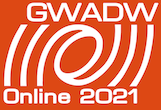Speaker
Description
The first direct detection of gravitational waves by the LIGO and VIRGO collaborations has opened up new avenues to explore the Universe. Currently operating and planned gravitational wave detectors mostly focus on the range below 10 kHz, where signatures from known astrophysical sources are expected to be discovered. However, based on what happens with the electromagnetic spectrum, there should be interesting physics to be discovered at every scale of gravitational wave frequencies. In particular, any discovery of gravitational wave signatures at frequencies higher than 10 kHz would correspond either to exotic astrophysical objects (such as primordial black holes or boson stars) or to cosmological events in the early Universe, such as phase transitions, preheating after inflation, oscillons, cosmic defects, etc. Hence, the search for high-frequency gravitational waves is a promising and challenging search for new physics and it provides a unique opportunity to test many theories beyond the Standard Model that could not be tested otherwise. In this talk, I will briefly review the state of the art about high-frequency gravitational wave physics, both from the theoretical point of view - summarising the most promising known sources and their features - and from the experimental point of view - presenting the state of the art in terms of experimental proposals in this frequency range and what are the possible ways forward.

